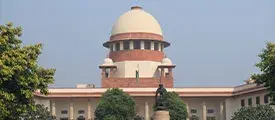Copyright Law in Cambodia- A General Overview
Legislation: Law on Copyright and Related Rights, 2003[1]
Office: Department of Copyright and Related rights, Ministry of Culture and Fine Arts
Address: 227 Norodom Blvd., Phnom Penh, Cambodia.
Email Id: info@mcfa.gov.kh; mcfa@cambodia.gov.kh; sim.satta2007@gmail.com
Website: http://www.mcfa.gov.kh/#
Works Protected
“Work” under the Copyright Law in Cambodia means a product in which thoughts or sentiment are expressed in a creative way, and which falls within the literary, scientific, artistic or musical domain;
The following work of authors will automatically be protected:
- Where author is national of Cambodia/ legal entity established under law of Cambodia and having headquarter located in territory of Cambodia.
- Work first published in Cambodia; and other works published outside Cambodia, but brought in Kingdom of Cambodia within 30 days of first communication to public.
- Audio-visual works, producer of which has his residence or headquarters in Cambodia.
- Work of Architecture including building or other structures, which are located in Kingdom of Cambodia.
- Work for which Kingdom of Cambodia has obligation to grant protection under its international treaties.
For Performers:
- Performers who are nationals of Cambodia
- Performers who are not nationals of Cambodia but whose performance take place in Cambodia or performance is incorporated in phonograms which are protected under the copyright law of Cambodia, or fixed in phonogram but are included in broadcast qualifying for protection under copyright law of Cambodia.
For Phonograms
- Whose producer is national of Kingdom of Cambodia.
- First Fixed or First published in Kingdom of Cambodia
For Broadcasting Organisation
- Headquarter of Broadcasting organisation is located in Kingdom of Cambodia
- Transmitters located in Kingdom of Cambodia
The provisions in this Law shall also apply to performers, phonogram producers, and broadcasting organizations that are eligible for protection by virtue of and in accordance with any international treaties or other international agreements to which the Kingdom of Cambodia is a party.
Subject Matter and Exclusions
Subject-matter
- All kinds of reading books or other literary, artistic, scientific, and educational documents.
- Lectures, speeches, sermons, oral or written pleadings and other works of the same characteristics.
- Dramatic works or musical dramas.
- Choreographic works, either modern or adapted from traditional works or folklore.
- Circus performances and pantomimes.
- Musical compositions, with or without words.
- Audio-visual works.
- Works of painting, engraving, sculpture or other works of collages, or applied arts.
- Photographic works, or those realized with the aid of techniques similar to photography
- Architectural works.
- Maps plans, sketches or works pertaining to geography, topography, or other sciences.
- Computer program and the design encyclopaedia documentation relevant to those programs.
- Products of collage work in handicraft, hand-made textile products or other clothing fashions
Exclusions
- Constitution, Law, Royal Decree, Sub-Decree, and other Regulations.
- Proclamation (Prakas), decision, certificate, other instructed circulars issued by state organizations.
- Court decision or other court warrants.
- Translation of those materials mentioned in the preceding paragraphs (a), (b), and (c) of this article.
- Idea, formality, method of operation, concept, principle, discovery or mere data, even if expressed, described, explained or embodied in any work
Authorship
The Copyright Law in Cambodia provides for following determination of authorship:
- The natural person in whose name the work is created and disclosed, is the author of the work unless there is evidence to contrary.
- Co-authors have to act unanimously and under written agreement. In case of disagreement, a petition has to be filed to the Court.
- Natural or legal person in whose name whose name the work is publicly disclosed during the time of communicating the time of communicating to public, such person is vested with authorship rights unless there is evidence to contrary.
- In case of pseudonymous or anonymous works, the publisher/ person who originally discloses the work will be entitled to exercise and enforce the moral and economic rights of the author.
- In case of audio-visual works, on or more persons who realizes the intellectual creation of the audio-visual work are deemed to be authors of the work. In this regard, unless there is evidence to the contrary, the following are considered co-authors in such work:
- The director.
- The author of scenario.
- The author of the adaptation.
- The author of the spoken text.
- The author of the musical compositions, with or without words, specially created for the sake of that work.
- The author of the graphic arts for animated works.
Moral Rights and Exclusive Rights
The Author of the work is the first owner of Moral Rights and Economic Rights. However, where a work is created under a working contract for benefit of the employer then, unless the agreement provides otherwise, the employer will enjoy the Economic Rights.
The Moral Rights and Exclusive Rights can be enforceable against all person. Moral Rights are perpetual, inalienable, distrainable, and imprescriptible and shall be transferred to heirs of author upon death of the author. In case there is no heirs, the right will be subjected to the administration and governance of the state represented by the Ministry of Culture and Fine Arts.
The Moral Rights of the Author contains:
- The author has exclusive right to decide the manner and the timing of disclosure of his/her work as well as the principle to govern this disclosure.
- For the purpose of relation with the public, the author enjoys his/her right in respect of his/her name, title, and work.
- The author has right to oppose all forms of distortion, mutilation, or modification of the content of his/her work, which would be prejudicial to his/her honour or reputation
The Exclusive Rights of the Author includes:
- Right to exploit work, through
- Authorization of Reproduction
- Communication to Public
- Creation of Derivative work
- Translation of work
- Adaptation and Simplification or Modification of work
- Right to Rent / Public Lending
- Right to Public Distribution / Sale of work
- Reproduction of work
- Public Performance of work
- Public Display of work
- Broadcasting of work
- Other means of communication of work.
When Author’s permission is not required?
The following are the instances when the permission from the author is not required/ mandated:
- Importation of copy for Personal Use.
- Reproduction for Private Use.
Private and Personal Use for Reproduction is not applicable where work is work of architecture; where reproduction is in form of reprography of the whole or a substantial part of a book/ database in digital form and of a musical work in the form of musical notation; computer programme other than back-up copy; or in any case where reproduction will be in conflict with legitimate interest of the author/ right holder.
- Free and private representations made exclusively to a close circle of people such as family or friends.
- The arrangement to preserve in a library the copy of work for the purpose of conservation or research.
- The use of work for the purposes of education, which is not for financial gain.
- The translation of works from Khmer language into the languages of the ethnic minorities or vice versa
Similarly, where author’s name and source of work is clearly identified, the following instances also does not require author’s permission:
- The analyses and short quotations justified by the critical, polemical, pedagogical, scientific or informative nature of that work.
- The broadcasting of press commentary.
- The dissemination of speeches addresses to the public either entirely or in part, through press release or television broadcasting.
- The adaptation of comic, style or caricature, based on original work.
- The reproduction of graphic or plastic work which is situated in the public place, when this reproduction doesn’t constitute the principle subject for subsequent reproduction.
- Use a legally published work for the purpose of illustration in publication, subject to mentioning of the source and author’s name, if author’s name is given in the source.
- Reproduce any separated articles, articles of the newspaper or magazine, or short extracts of any legally published works. This is subject to the condition that such reproduction is made by reprographic means, and must be used for the sake of teaching or for examinations held by any educational establishments of which the activities do not lead directly or indirectly to commercial gain and must be done with appropriate reason according to this specific objective. The authors name must be mentioned with the source, if author’s name is available in the source.
Duration of Copyright Protection in Cambodia
Under the Copyright Law in Cambodia, the protection period starts from the date of creation. The protection is for duration of life of author, and 50 years following the death of the author.
The language of the law is different from many other countries as the protection period is identified from the date of creation and not from the date of publication.
The duration of protection for anonymous or pseudonymous work is for a period of 75 years from the date which the work was first published. If the work is not published within 50 years from the date of creation then year protection will be counted from the date of creation for 100 years. However, if during this period if identity of author is disclosed to public (beyond doubt), then the period will be calculated for life of author and 50 years after his/her death.
The duration of protection for audio-visual work, collective work or posthumous work are protected for a period of 75 years counted from the date of publication. If the work is not published within 50 years from the date of creation then year of protection will be counted from the date of creation for 100 years.
Registration and Foreign Works
Registration
Under the Copyright law in Cambodia, the work is automatically protected. The work for purpose of record can be deposited at Ministry of Culture and Fine Arts. The Ministry of Culture and Fine Arts will be responsible for issuance of Registration Certificate.
The applicant is required to submit:
- Author’s real name
- Date of first publication
- Date of creation of work
- Record of author’s right.
- Application fee as per PRAKAS
Note: PRAKAS is a Joint-Declaration of the Ministry of Culture and Fine Arts and the Ministry of Economy and Finance.
Foreign Work
In case of foreign works, the law is not same as it is for nationals of Cambodia. The Foreign works do not enjoy automatic protection in Cambodia. Cambodia as Least Developed Country has until July 2021 to comply with TRIPS with limited exemptions. Pursuant to extension of transition period under Article 66.1 for LDC the extension is given until 20201 to be compliant with TRIPS.
The story here is by becoming a member of TRIPS Agreement, Cambodia is bound by the terms of the agreement which also requires extending copyright protection to the foreign works through Berne Convention; however by virtue of being Least Developed Country (LDC), Cambodia is exempted from this obligation until July 2021 and until this period foreign works will not have automatic protection in Kingdom of Cambodia.
Therefore, unless the foreign work satisfies the requirement of protection under Cambodian law, it is recommended to obtain copyright registration in Cambodia for effective enforcement of rights in Cambodia.
Performers and Broadcasting Organization
Performer has exclusive right to:
- broadcasting and the communication to the public of performance, except for the broadcasting of phonogram fixation of the performance authorized by the performer or rebroadcasting through television broadcasting or having authorization of the first broadcasting organization initially broadcast this performance.
- fixation in phonogram of his/her unfixed performance
- reproduction of a fixation in phonogram of his/her performance
- distribution to the public by sale or transfer of ownership, of an original fixation in phonogram of his/her performance that have not been a subject to any distribution authorized by the performer.
- rental or lending to the public of an original fixation in phonogram of his/her performance or copies thereof.
- Authorize the broadcasting through any broadcasting organization, but the other broadcasting organizations are not authorized to broadcast this performance
- Authorize the broadcasting through any broadcasting organization but that broadcasting organization is not authorized for the fixation of this performance in the phonogram.
The Performer also has the right to require his/her written name to be displayed on live performance or fixed performance except for the mode of use necessitates the omission of this mention. The performer also retains his/her right to object to all deformation, mutilation or other modifications of his/her performance which are prejudicial to his/her reputation.
Broadcasting Organizations consists of radio, television, and cable television station, and such organizations have following exclusive rights:
- right to undertake or authorize the fixation of its broadcast,
- communication to the public,
- re-broadcasting, reproduction, distribution or first lease of the copy of its broadcast.
It is further clearly identified that any reproduction of broadcast belonging to the broadcasting organization for the purpose of sale, lease, exchange, broadcasting or communicating to the public anywhere, must require the authorization of the respective broadcasting organization.
Disputes and Penalties
In case of Infringement of the Copyright, the Court has the power to:
- Order Confiscation of infringing work
- Order Destruction of Equipment or material produced illegally, found in possession of the infringer. Further, the Court also has the power to:
- Order provisional measures to ensure conservation of evidence
Note: The complainant is responsible for any injury caused to the defendant if the complaint is proved to be unfounded by the Court.
Imprisonment and Fines
- Infringement of production or reproduction is punishable by 06 months to 12 months and/ or 5,000,000 (approximately 1230 USD) Riel to 25,000,000 Riel (approximately 6080 USD).
- The importation or exportation of product obtained from the infringed acts of reproduction is punishable by 06 months to 12 months and/or 2,000,000 Riel (approximately 490 USD) to 10,000,000 Riel (approximately 2435 USD) fine. Further, double punishment is also applicable in case of repeated offences.
- Infringement of performance or communication to the public is punishable by 01 month to 03 months and/or 1,000,000 Riel (approximately 245 USD) to 5,000,000 (approximately 1230 USD) Riel fine. Further, double punishment is also applicable in case of repeated offences.
- All production or reproduction, of a work without having authorization of the performer or phonogram producer or video producer or broadcasting organization is punishable by 06 months to 12 months imprisonment and/or 5,000,000 Riel (approximately 1230 USD) to 25,000,000 (approximately 6080 USD) Riel fine. Further, double punishment is also applicable in case of repeated offences.
- The importation or exportation of phonogram, cassette, or video cassette without authorization of the performer or phonogram producer or video producer or broadcasting organization is punishable by 01 month to 03 months and/or 2,000,000 Riel (approximately 490 USD) to 10,000,000 Riel (approximately 2435 USD) fine.
- The broadcasting by broadcasting organization without permission of the performer or phonogram producer or video producer or broadcasting organization is punishable by 01 month to 03 months and/or 1,000,000 Riel (approximately 245 USD) to 10,000,000 (approximately 2435 USD) Riel fine.
[1] https://www.wipo.int/edocs/lexdocs/laws/en/kh/kh003en.pdf








